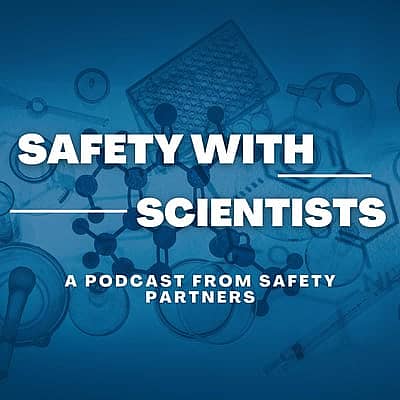Have a lab space in Watertown? The Watertown Health Department recently updated the biosafety permit and registration application forms.
Listen to tips from our team in this latest podcast episode, so you have everything you need to know with the new updates for upcoming renewals. All 2021 permits and registrations are due for renewal by the end of this year. The forms can be found here.
Transcript below:
In July 2020, right in the pandemic, is when Watertown sort of enacted their ordinance. And on paper, it looks very similar to Lexington’s ordinance, if you’re familiar to it. But the way they’ve implemented it, I would say, is entirely different. So, a permit is required for pretty much most rDNA work, so for anyone who has clients in Cambridge, pretty similar, right? BL1, BL2, BL3 rDNA work.
And any work with a BL2 or BL3, biological agent, so, you know, certain types of bacteria, viruses, and so forth. And there’s no BL4 allowed. However, that’s kind of where the similarities end because, I mean, there’s other things they say that require a permit. If you’re working with primary human or non-human primate material, even if it’s non-rDNA, they want a permit. I know that’s not very common.
On top of that, they have what’s called a registration. And the definition of what fell into a registration, versus a permanent, versus being exempt was up for much debate over this past year. So, generally speaking, if you have a BL1 lab, and you’re not doing any recombinant work, or there’s certain types of exempt recombinant work, instead, you will apply for a registration. And it’s a much shorter process, you don’t have to present in front of the Watertown Biosafety Committee. Yeah. So, the NIH guidelines 3F, you know, describes that.
I will also state that Watertown doesn’t have a specific animal, like, lab animal ordinance, but it tends to fall in here as well. So, the permits, they expire at December 31st of every year. And then what’s exempt? So, pretty much if you’re in a medical facility or clinical lab using, you know, commercial diagnostic tests, or you’re doing work with human cell lines, you know, commercial, non-primary human cell lines that don’t revolve any recombinant work falls in exempt as well.
So, the way I’ve kind of framed it is that it’s in three kind of critical events. So, the first event is submission of the bindersAnd then the next event is attending that initial Watertown Biosafety Committee meeting. And then once you pass that meeting, they essentially give you the okay then. Work cannot start until it’s been finalized through the Watertown Board of Health. So, that meeting is then two weeks later, at that Watertown Board of Health meeting, the Watertown Biosafety Committee will present your client to the Board of Health for approval.
You have to hold that IBC meeting and submit those minutes with the application package. They will not accept it otherwise, they will not let you present otherwise. I have seen that happen. So, make sure the meeting minutes are in there. The committee composition is different from other towns, you only need one community rep. And that rep must live or work in Watertown or live in a neighboring city or town. Yes, you can just work in Watertown.
So, they really want to make sure that you are taking into consideration what types of biological material you’re using, what are the potential hazards, and how are you addressing it. Right? So, all those things where you think, and they have said this at multiple meetings, you might know what those precautions are, but you have to communicate it to the Watertown Biosafety Committee. So, just make sure it’s all written down. I know every time we have to put in the minutes, not targeting oncogene, you’re like, “Again?” Do it.
And, let’s see, and if there’s anything that is outside of the regular biosafety procedures, make sure those are outlined in the minutes as well. You know, are you double-gloving, things like that. Be very explicit, if in doubt, put it in there, in the minutes.
So, as I mentioned, the second critical event is the presentation to the Watertown Biosafety Committee. It’s general five-minute verbal description of what’s the company, what do they do, what’s their goals. Like, very quick kind of low level, there’s no slides required. It’s an oral presentation on a basic background of the company.
I would like to call this the sequel because we went there and back again, and now we’re going on another adventure with renewals. So, the renewal consists of two components and annual reports. I will say a majority of it, if there’s no changes from your original permit application, you can probably just take, you know, from there and then transfer it into the annual report.
So, IBC minutes for that current year, so if you got your permit in 2021, just use the same minutes, and then just, you know, put them in your renewal package. And then you have to state if there have been any changes in that past year.
I think that’s it. There you go. Questions? Yes, it’s still a $500 fee. I believe registrations if any company has a registration, it is also due at the same time. They don’t specifically outline in the regulations what they want for the registration.


